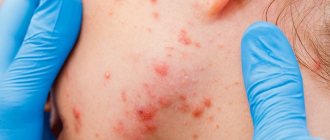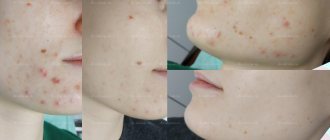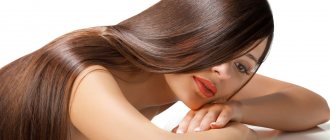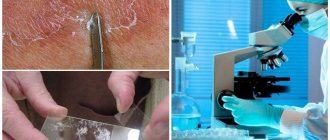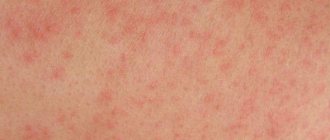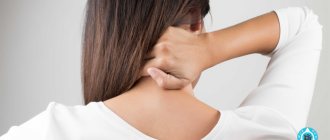General information
Skin itching is one of the interdisciplinary problems that are relevant both for dermatovenerology and allergology, endocrinology, infectology, and oncology.
Some forms of itching (anal itching, scrotal itching, vulvar itching) are considered in ICD-10 as independent nosologies. Itchy conditions are more often diagnosed in women. Frequent background factors are low socioeconomic status, depressive states, constant stress, periods of hormonal changes (pregnancy, menopause). Depending on the course, skin itching can be acute (sudden, short-term) and chronic (long-term, debilitating), according to the area of the itchy surface - localized (local) and generalized (diffuse). According to the mechanism of occurrence, skin itching is divided into:
- pruritoceptive (due to skin diseases);
- systemic (due to general diseases);
- psychogenic (due to mental disorders);
- neurogenic (due to damage to the nervous system).
Let's sum it up
Peeling and itching of the skin in old age is not always a sign of a serious dermatological or systemic lesion. But if the problem becomes permanent, the patient’s quality of life deteriorates and constant physical and psychological discomfort arises, which can lead to complications.
Therefore, at the first manifestations of itching, it is important to consult a doctor as soon as possible to receive symptomatic treatment to alleviate the condition and well-being.
Causes of itchy skin
Itching of the scalp
Caused by diseases of the hair and scalp. It is accompanied by a feeling of skin tightness, scaly desquamation of the epidermis (dandruff), increased oiliness of the hair, excess sebum production, fragility, and sometimes hair loss. Itchy scalp can be caused by incorrectly selected care and styling products (shampoo, conditioner, hairspray). The most common pathological causes of itchy scalp include:
- pathology of the sebaceous glands: dandruff, seborrhea (oily, dry, mixed);
- parasitic diseases: head lice, demodicosis, flea bites, bedbugs;
- mycoses: favus, trichophytosis, microsporia;
- hair shaft abnormalities: idiopathic trichoclasia, knotty hair;
- autoimmune pathologies: psoriasis, SLE, scleroderma;
- other dermatoses: pityriasis versicolor pilaris (Devergie's disease), allergic dermatitis of the scalp;
- general diseases: hypovitaminosis A, heavy metal intoxication, hypothyroidism.
Itchy skin
Body itching
The causes of skin itching can be dermatological and systemic diseases. In some cases, body itching is caused by simple lack of personal hygiene: rarely taking a bath or shower, wearing dirty clothes. On the other hand, itchy skin can occur with infectious and parasitic dermatoses that are contagious to others. Itchy dermatoses are often found in older people (senile itching) and pregnant women. Dermatological diseases that most often cause itchy skin include:
- inflammatory lesions: prickly heat, seborrheic dermatitis, eczema, lichen planus, acne;
- skin infections: herpes, pyoderma, folliculitis, dermatophytosis;
- acariases and entomosis: scabies, demodicosis, pediculosis, insect allergy;
- chronic autoimmune dermatoses: psoriasis, dermatomyositis, Dühring's dermatitis herpetiformis, pemphigoid, pemphigus vulgaris;
- allergic dermatoses: urticaria, prurigo, allergic contact dermatitis, neurodermatitis;
- genodermatoses: ichthyosis, Darier's disease, Haley-Hailey disease;
- skin tumors: leukemides, Sezary syndrome, mycosis fungoides and other T-cell lymphomas of the skin.
Itching of the whole body can be a side effect of taking certain drugs: ACE inhibitors, anti-gout, antiarrhythmics, hormonal drugs, opioids. Systemic diseases occurring with chronic skin itching:
- endocrinopathies: diabetes, hypothyroidism, thyrotoxicosis;
- diseases of the hepatobiliary system and kidneys: cholestasis, cirrhosis of the liver, chronic hepatitis, chronic renal failure;
- infections: HIV, helminthiasis;
- hematological diseases: mastocytosis, leukemia, polycythemia, myeloma, lymphogranulomatosis;
- mental disorders: OCD, depression, dermatozoal delirium.
Itching in the eye area
My eyelids can itch due to any of the listed skin, infectious and general somatic pathologies. However, more often the causes of itching in the eyes are ophthalmological diseases and visual strain. People who use contact lenses, work in contact with dust and chemicals without proper eye protection, and patients with allergies and immunodeficiencies are at risk of developing such a problem. Causes of itchy eyes:
- injuries: foreign bodies, burns, mechanical damage;
- inflammatory diseases: blepharitis, conjunctivitis, meibomitis, barley, keratitis;
- parasitic lesions: demodicosis, dirofilariasis;
- allergies: eyelid dermatitis, hay fever;
- other eye diseases: dry eye syndrome, computer vision syndrome, glaucoma, cataracts.
Psoriasis
Psoriasis is a pathological process that occurs as a result of stress and constant psycho-emotional tension. It is most common among people who engage in mental activity. The disease begins with the formation of red spots on the neck, most often in the front, which begin to peel and itch a little later. This is a chronic pathology that cannot be cured. Patients are advised to rest more, eat well, avoid emotional overload and the use of alcoholic beverages. Therapy is prescribed to achieve periods of remission and reduce the manifestation of unpleasant symptoms. Sometimes the skin on the front of the neck itches due to thyroid pathologies.
Diagnostics
Since skin itching is caused by a variety of reasons, specialists from various medical fields are involved in identifying them: dermatologists, parasitologists, trichologists, allergists-immunologists, ophthalmologists, endocrinologists. The nature of the itching can be assumed based on the collected history, localization, and the presence of skin elements (vesicles, papules, pustules, scales, excoriations, crusts). Taking into account the suspected etiology, the examination may include:
- Examination of the skin and scalp.
It is carried out using a Wood's lamp, dermatoscope, trichoscope. Allows you to conduct a visual assessment of skin elements, hair condition, and identify the presence of parasites. Scales and questionnaires are used to measure the severity of itching. - Laboratory diagnostics.
If a systemic nature of skin itching is suspected, the level of thyroid hormones, glucose, liver enzymes, urea and creatinine in the blood is determined. They perform microscopy of skin scrapings, stool analysis for helminth eggs, and spectral analysis of hair for the content of vitamins and heavy metals. Markers of viral hepatitis and HIV infection are studied. - Ophthalmological diagnostics.
A basic examination includes biomicroscopy of the eye, fundus examination, and tonometry. An instillation test with fluorescein is used as an additional method. - Allergy diagnostics.
The main methods for identifying allergies are blood tests (individual allergens, histamine, total IgE) and skin allergy tests for atopy antigens (prick test, prick tests). - Other examinations.
To exclude damage to internal organs as the cause of skin itching, an ultrasound of the hepatobiliary system and kidneys is performed. In unclear cases, a skin biopsy is required.
Examination by a dermatologist
Option to choose a specialist
The need for treatment measures determines the need to select a medical center that meets the search criteria, which includes the availability of qualified personnel in various specialized areas, laboratory capabilities and instrumental equipment, as well as a course of treatment procedures.
Commercial centers fully cover this range of services, and you can choose an acceptable and convenient location through our Help Desk for private clinics in Moscow “Your Doctor”, a visit to which allows you to immediately sign up for an hour-long visit to a specialist or register a dermatologist’s home call
.
Common symptoms and manipulations in dermatology:
- Skin rashes
- Calling a dermatologist to your home
- Itching in the urethra
- Itchy skin
- Skin rash
- Prevention of casual sex
- Skin neoplasms
- Pyoderma
- Pityriasis rosea
- Streptoderma
- Scabies
- Peeling skin
- Fungal infections
- Skin infection
- Pus on the skin
- Blisters on the skin
- Papillomas on the foreskin
- Sexually transmitted diseases
- Skin structure
This article is posted for educational purposes only and does not constitute scientific material or professional medical advice.
Author:
Kasabov Vadim Vladimirovich Dermatovenerologist
Back to section
Treatment
Treatment for itchy skin
Therapy for skin itching is carried out taking into account the established causes and associated factors. For this purpose, pharmacotherapy, local therapy, physiotherapy, and psychotherapy are used. Patients with itchy skin need to change their eating and daily household habits: giving up sweet foods, wearing clothes made of synthetic and coarse fabrics, and using detergents that dry out the skin. It is recommended to avoid stress, avoid scratching the skin, and use neutral moisturizers.
Direct treatment for itchy skin consists of the following components:
- Topical therapy.
Among local antipruritic drugs, topical steroids, cooling lotions, local anesthetics, antihistamines, and calcineurin inhibitors are recommended. The drugs are available in the form of creams, solutions, powders, and ointments. - Systemic pharmacotherapy.
Taking into account the etiological factor of skin itching, antihistamines, glucocorticosteroids, vitamins, immunosuppressants, antimicrobials, and in some cases antidepressants and opioid analgesics are prescribed. - Physiotherapy.
Among the methods of physiotherapy for various forms of skin itching, PUVA therapy and PUVA baths, ultraviolet irradiation, laser therapy, ultraphonophoresis, electrosleep, etc. can be effective. Exercise therapy, acupuncture, general baths with a sedative effect (pearl, pine, valerian) are useful. - Psychotherapy.
Psychotherapeutic techniques (autogenic training, group psychotherapy, cognitive behavioral therapy) help reduce the subjective perception of the severity of itching, stop scratching the skin, improve sleep and quality of life.
Treatment for itchy scalp
The problem of itchy scalp often resolves when the underlying disease goes into remission. In all cases, the selection of pharmaceutical cosmeceutical hair care products is important: shampoos, masks, oils. For complex treatment of the identified problem, a trichologist may suggest mesotherapy, cryomassage, darsonvalization, and laser treatment of the scalp. For dandruff and seborrheic dermatitis, use antifungal shampoos. For pediculosis, the scalp is treated with special products.
Treatment for itchy eyes
Treatment of itching in the eye area has its own specifics and is carried out mainly using local remedies. During treatment, you must stop using cosmetics and wearing contact lenses in favor of glasses. To eliminate the causes of itching, the following are prescribed:
- instillation of eye drops: antihistamines, steroids, antibacterials, “artificial tears” preparations;
- placing ointments behind the eyelid;
- shading of the conjunctiva with antiseptic and astringent agents (for conjunctivitis);
- treatment of the ciliary edge of the eyelids (for demodicosis, blepharitis);
- washing the conjunctival sac (for eye burns, foreign bodies);
- physiotherapy: UHF, magnetic therapy, magnetophoresis, laser therapy.
If necessary, surgical interventions are performed: opening the stye of the eyelid, removing foreign bodies of the conjunctiva and cornea, anti-glaucoma operations, phacoemulsification of cataracts, etc.
Neurodermatitis
This is a disease of nervous origin and requires complex treatment. Patients undergo therapy with a psychotherapist and a neurologist.
Signs of neurodermatitis are roughened upper layers of skin, hyperemia, pain during touch, roughness, the appearance of tubercles, irritation and severe itching at night. The disease can spread to other areas, accompanied by an inflammatory process.
Why does the front of the neck itch and turn red?
Diffuse goiter
This disease is associated with a high concentration of thyroid hormones in the blood. Symptoms of diffuse goiter are worsening mood, increased irritability, inflammation of the skin on the neck and itching. Inflammatory reactions contribute to an increase in goiter, which is sometimes easy to determine even visually.
Diffuse goiter is also accompanied by rapid heartbeat, bulging eyes, deformation of the eyelids, and severe burning in the thyroid gland.
The front of the neck often itches with redness. The cause may be acne.
Thyroid diseases
The thyroid gland is a rather vulnerable organ in the human body. Its pathologies can cause itching on the front of the neck, since the skin may suffer from hormonal disorders. Such diseases usually develop for the following reasons:
- lack of iodine;
- reduction in the amount of protein in food;
- intake of nicotine and alcohol;
- lack of microelements with high iodine levels;
- unfavorable environmental conditions.
Therapy for endocrine diseases should begin with the elimination of provoking factors. The patient must rule out the causes, adjust the diet and quality of food, and forget bad habits.
Hyperthyroidism
This pathology is associated with an increase in the level of hormones produced by the thyroid gland. In this case, metabolic processes and hormonal balance are disrupted, and malfunctions in the functioning of the gland and reproductive system are observed. If the neck itches in the front, that is, in the area of this organ, the patient is referred for examination to an endocrinologist, as well as for an ultrasound and blood test to determine the concentration of hormones. This itching of the neck usually occurs without rashes.
When the front of the neck itches without a rash, it causes more concern.
Prevention of tingling
When you first encounter a situation where the skin all over your body becomes prickly, you need to change your daily habits, supplement your daily routine with exercise, and review your wardrobe. The list of measures to prevent discomfort may include:
- Frequent changes of position during prolonged sedentary work (10 to 20 times per hour);
- short but mandatory breaks during long and monotonous work at least every 15-20 minutes;
- Replacing tight clothing with loose ones made from natural fabrics;
- avoidance of too tight belts and tight shoes;
- control posture in a sitting position;
- exercises for the spine, massage, going to the gym or swimming pool;
- prevention of hypothermia;
- change your diet as directed by your doctor.
Acne
In the cervical-collar area, with the development of acne, characteristic rashes appear that itch. Scratching is strictly prohibited. Initially, specialists find out the cause of such itching on the front of the neck, and then prescribe treatment methods.
The culprits in the development of acne may be:
- regular contact with the allergen;
- neglect of hygiene measures;
- viral and bacterial infections of lymph nodes;
- diseases of the digestive system.
Severe itching of the neck in front, peeling of the skin and burning cause the patient a lot of inconvenience and discomfort, which makes him overly irritable and apathetic.

